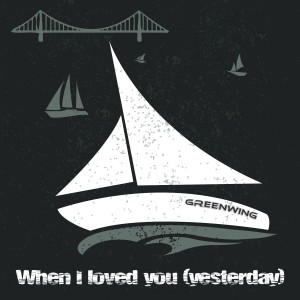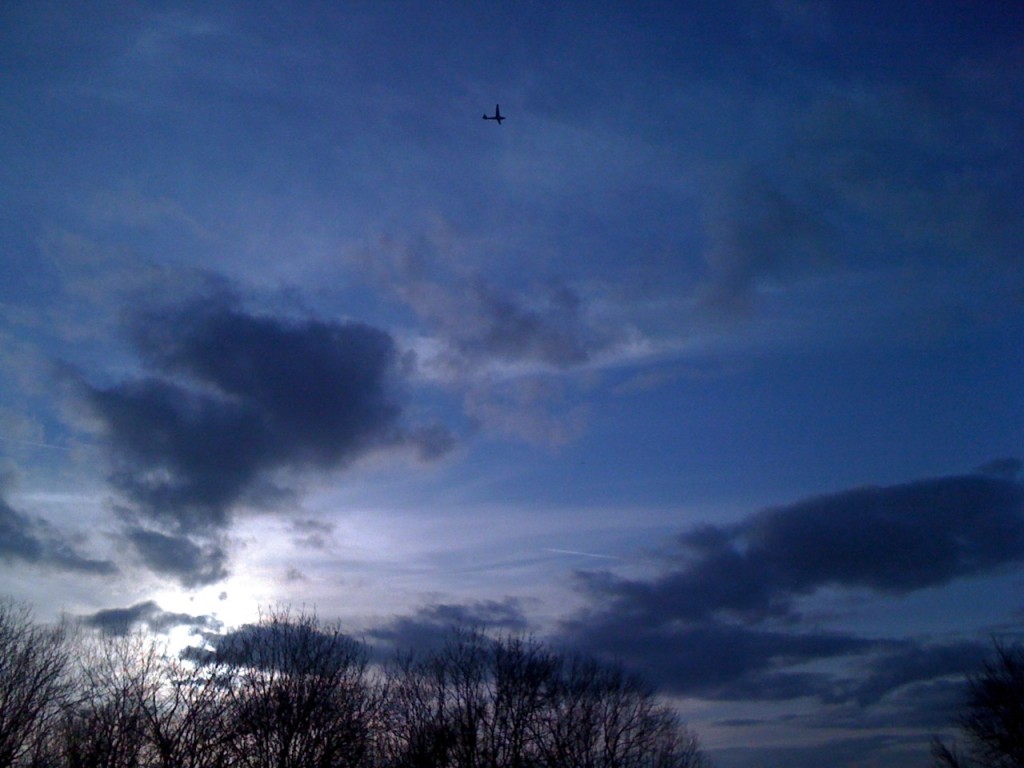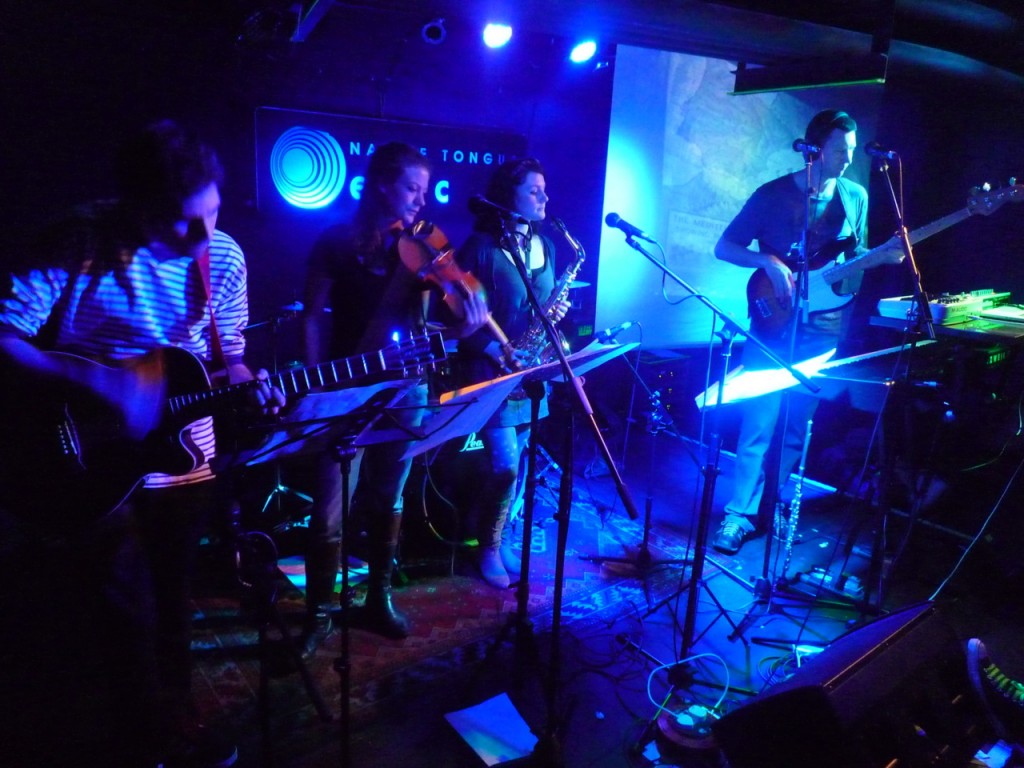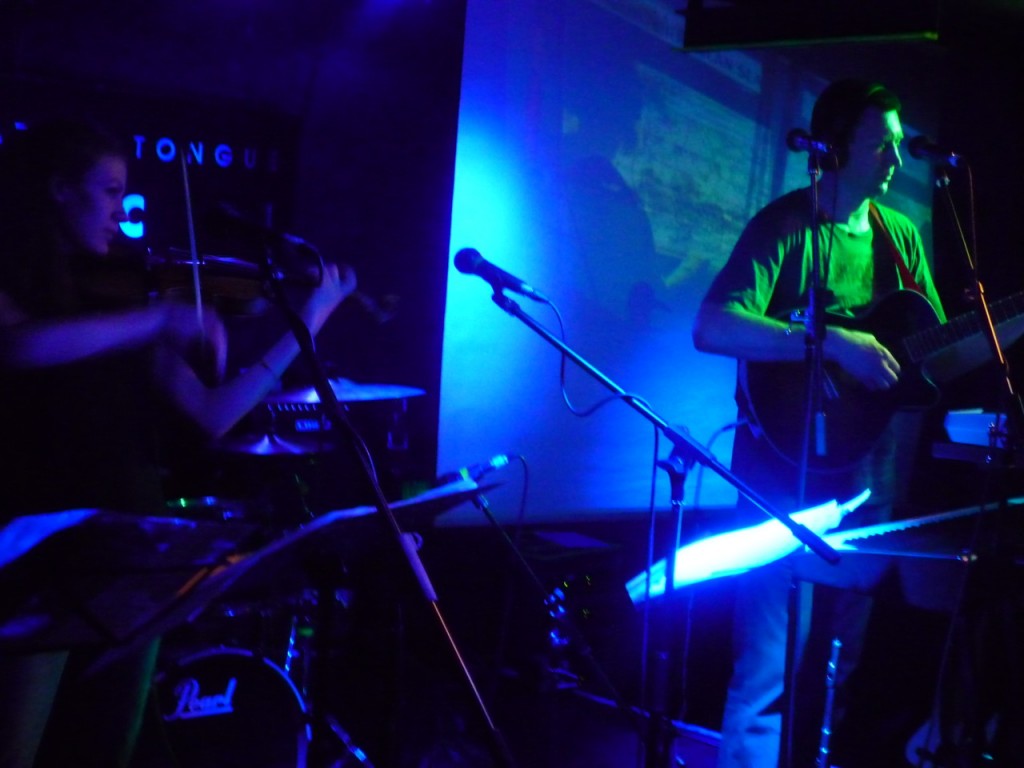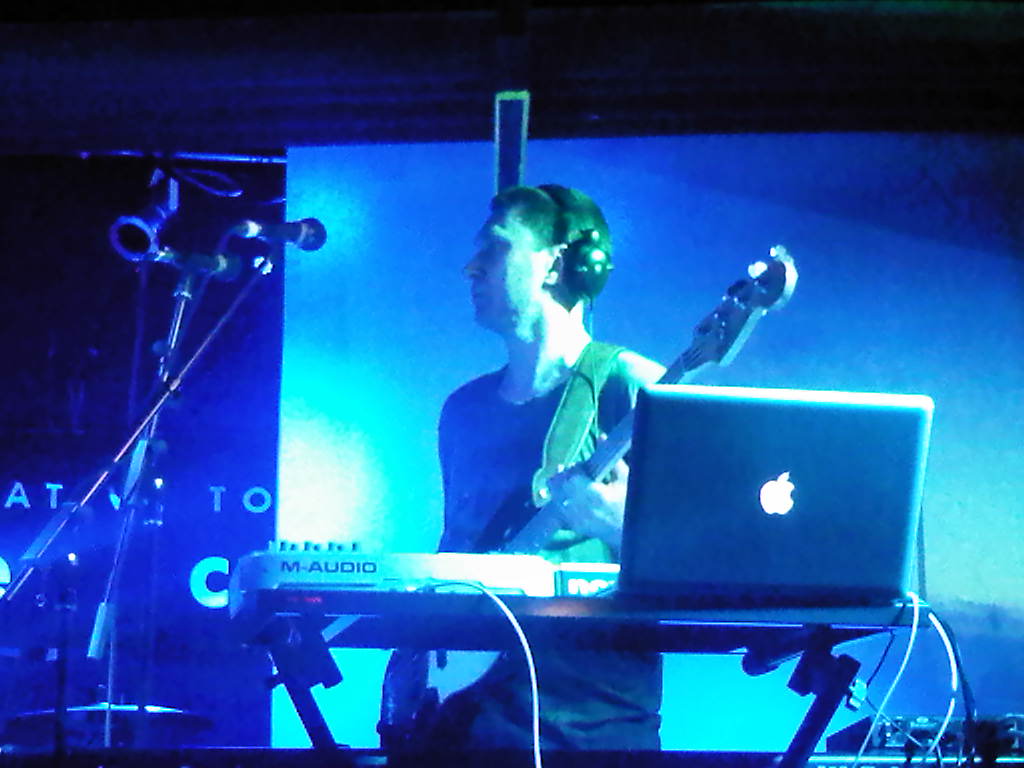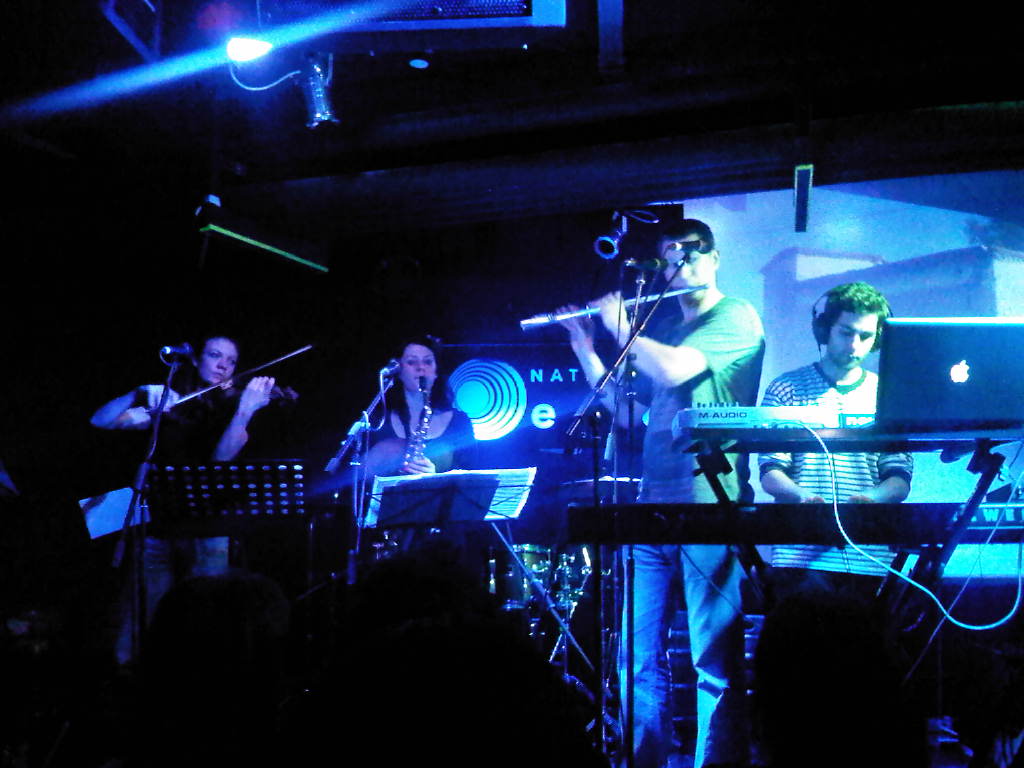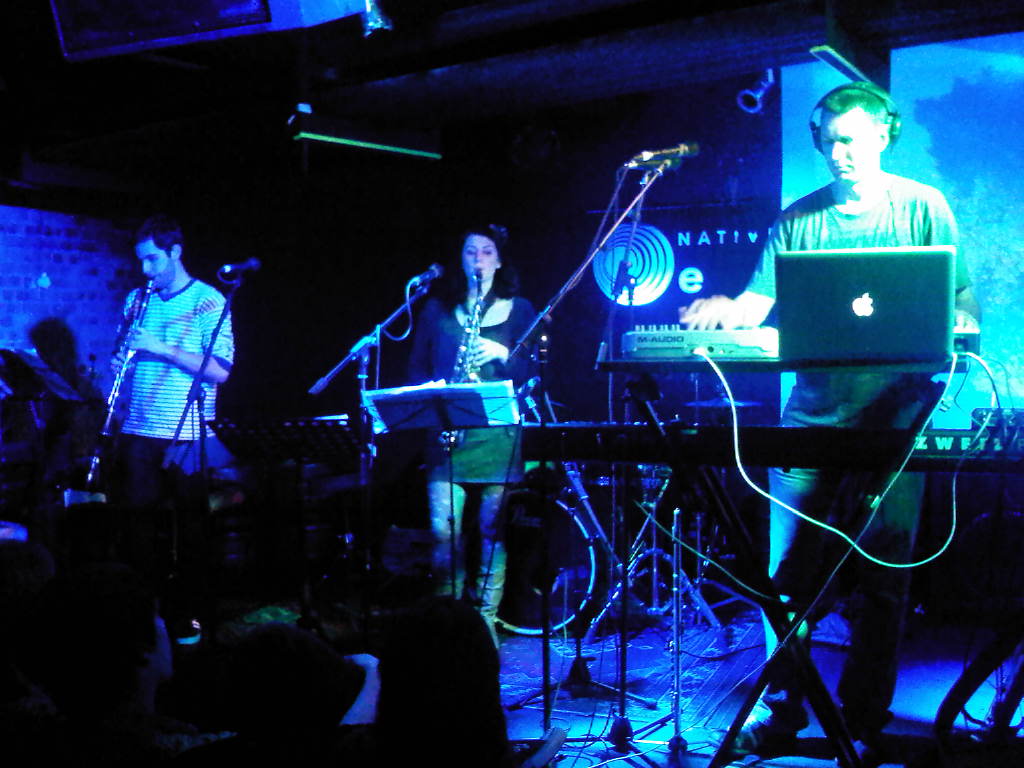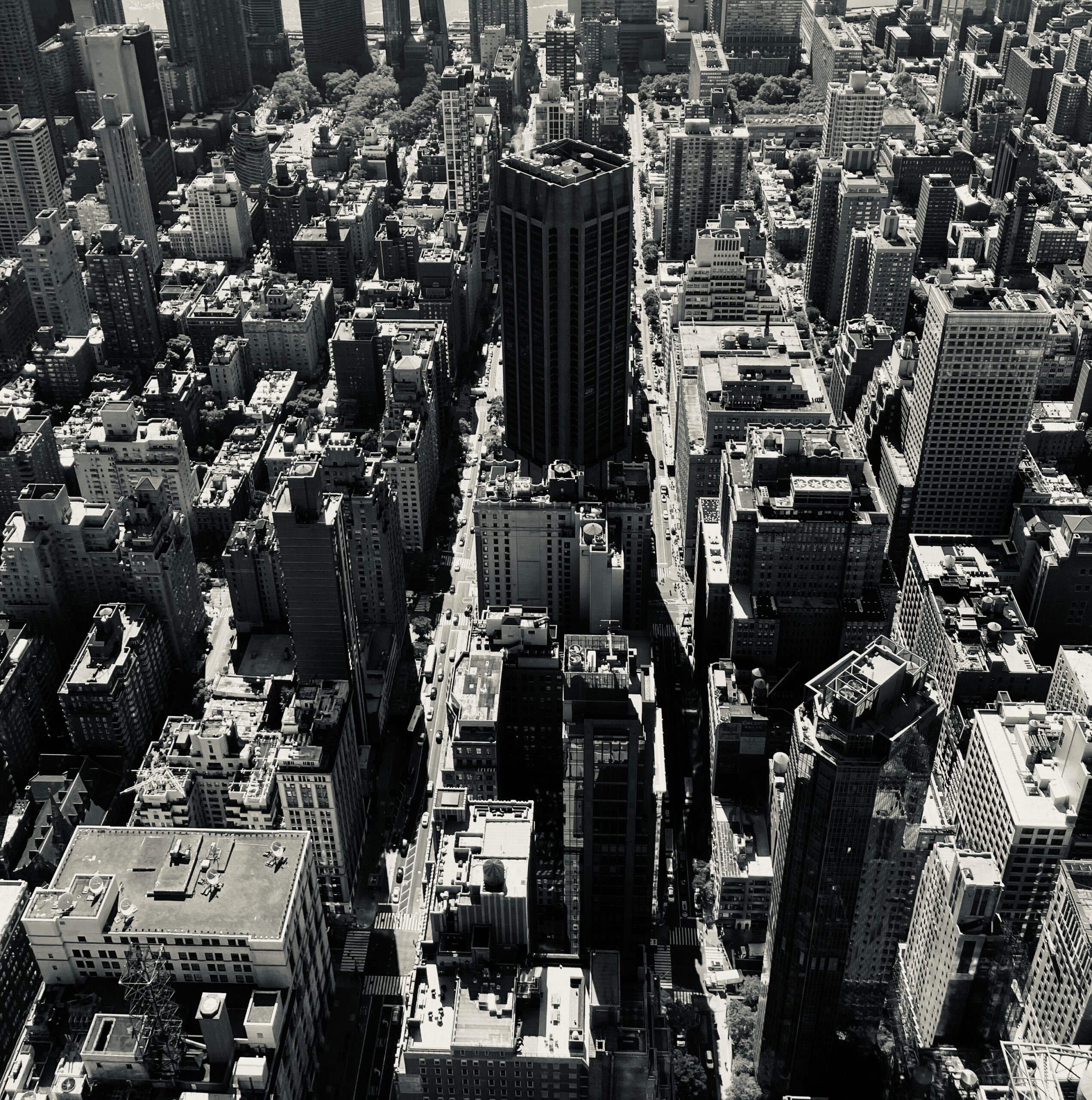Mr Wong
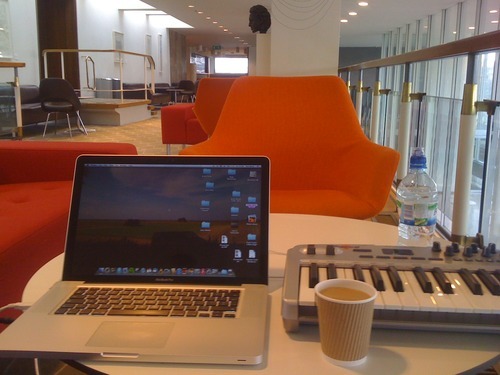
“They will die, no question, they will die. How long they will die, I just don’t know”.
The man uttering these words in the café of the Shaftesbury Curzon Cinema looked like a parody of a Hong Kong businessman from a Jackie Chan film- heavy set, the kind of unnerving smile that made you want to suddenly remember a forgotten appointment and head out into the street, scattering apologies and pedestrians as you made a dash for the nearest underground station. The man he was talking to was “Mr Wong”, who barely said a word for the entire length of the conversation. For those unfamiliar with the Curzon, it is literally across the road from Chinatown, so whilst that would make it a fairly obvious meeting point for Far Eastern businessman to conduct their affairs, it’s bohemian and louche quality- not to mention it’s extravagant, frankly gay, selection of cakes- made it a slightly incongruous setting for the dialogue that was unfolding. As the two men sat on tall stools by the window overlooking Shaftesbury Avenue, it became clear that the man out of HK central casting was on a mission to ensnare “Mr Wong”. He was describing in salacious detail the global appetite for ‘rare earth’ minerals, the essential components of most items of everyday modern technology. To get the dollar signs spinning in Mr Wong’s eyes, he was outlining Russia and China’s combined need for said ‘rare earth’, underlying that whoever was in the fortunate position of being able to offer these countries this precious resource would be in possession of ‘very..great…power’.
Mr Wong, it has to be said, was such a study in inscrutability that I feel totally vindicated in using this laziest of descriptors. It occurred to me that he didn’t actually have a clue what the Rare Earth Snake Oil salesman was talking about- a Gerard Street restaurant manager so far out of his depth that all he could do was double bluff by remaining at all times- well, there really is no other word for it: inscrutable. It also occurred to me that the RESO salesman might too be having a genuine job of trying to ascertain how much Mr Wong was playing a very cool hand indeed, and how much of his mind was actually occupied with that night’s menu and the ongoing problems of kitchen staff unreliability. RESO-man was certainly pulling out all the stops, name-dropping unfeasibly well-connected friends who had the ear of everybody from the chairman of General Motors to high-ranking politicians in various central African countries. Whilst listening to his patter, I was thinking about the fact that this location- on the very edge of Soho- was the cultural birth-place of a particular kind of scam that promised worldly riches beyond all imagining. Ben Jonson’s “The Alchemist” was set in Soho, and there was something rather satisfying from a Psychogeography perspective about such a similar drama unfolding on the same hallowed turf.
When he said “They will die”, RESO man was referring to the companies that currently have the capacity to excavate ‘rare earth’, but who he was foreseeing being overtaken by the people he was asking Mr Wong to invest in. As compelling statements in crowded central London establishments by men in shiny suits with Oriental accents go, “They will die, no question” is right up there with “The fucking building’s on fire!”, and, as Bertie Wooster might have said if he had been born sixty years later: “To reach into the old trouser pocket and hit the record button on my trusty iPhone was with me the work of an instant”. The conversation yielded further tantalising lines, including: “China is to blame”, “He is a very powerful man” and my favourite: “Whether he wants us to push them out the way, or whether he just wants no trouble, I don’t know”. These prospected psychogeographical nuggets form the basis of the track “Return of the Unreliable Narrator”, the sixth track on the forthcoming “Liminalondon” LP. The track is still being produced, but you can have a listen to an extract of it on the Tumblr site.
The Wasteland
[soundcloud url=”http://api.soundcloud.com/tracks/81374949″ params=”color=00353f& auto_play=true&show_artwork=true” width=” 900″ height=”200″ iframe=”true” /]
The Wasteland is the second track from the “Small Things” album, which depicts a ‘long/lost’ weekend charting the attempts to reconcile a relationship in crisis. The album begins with ‘The Big Freeze’, the initial indication of the perilous state that this particular relationship has reached. I deliberately left the sequence of events ambivalent on this album, which can of course lay one open to misinterpretation. The very wonderful electronic music fanzine “A Closer Listen” reviewed the album on it’s release, commenting that the instances of upbeat tracks suggested that the album was ‘an unusual take on the subject (of separation), presumably from the point of view of someone who feels spiritually lifted by the break’. Tempting though it is to take credit for coming up with something original, I can’t in all honesty say this was my intention. I had got a scenario very much mapped out in my own mind, and maybe it’s a failure of my intent that this doesn’t read clearly, but I rather like the idea that listeners can arrive at such radically different interpretations of pieces of music. The more positive, up tempo tracks on the album, such as “The Road Trip”, alternate with despondent ones such as “The Night Drive”, in the way that we so often seem to lurch from a state of unbridled optimism to one of fear and suspicion. We never really know what someone is thinking, even when we’ve been close to them for many years. This is, of course, the greatest gift that the universe ever bestowed on us, and the reason that a) we are able to have relationships in the first place, and b) why so much of these relationships are taken up with asking “What are you thinking?”. As any one in any relationship will know, there is absolutely no right answer to this; it’s right up there with “Does this look good on me?”. I suppose if I wanted to, I could take the idea that we are ultimately ignorant of each other’s thoughts as the explanation for keeping the course of events and scenarios on the album so deliberately opaque, but, dear reader, that really would be pushing artistic license too far. Suffice to say that I’m open to being told what any of the pieces mean- after all, if it’s true for you, it’s true.
One of the most over used phrases of the modern age is ‘in the real world’. The implication is usually along the lines of “It’s all very well, for you, but I live in a much more authentic environment, where worrying about whatever may be concerning you is a privilege I, or let’s face it, any ‘normal’ person, can ill-afford”. It can at worst enable people to avoid taking moral responsibility on issues- as living in this ‘real world’ exempts them from having to exercise such problematic ethical choices- or at best imbue them with a certain kind of artisan self-righteousness. I was a firm believer in this notion of what is ‘real’ myself, until I had a conversation with a friend who was teaching yoga to a lady in Knightsbridge- throwaway middle-class phrases, we got ‘em!- who had recently flown her son by private jet to the South of France because he’d had been feeling poorly; nothing too serious, but she knew a specialist/friend there, and had the means to take him straight away. I made a comment about living ‘in the real world’, and was surprised to find Natasha defend her client- of whom she was no great fan- by making the point that:” For them, that is the real world. That is the world they live in. A rarefied world, yes, a privileged world, obviously, but a real world nonetheless. For them, almost everyone else’s world is surreal by comparison, so it’s not valid to talk of one person living a more ‘real’ existence than another”.
So if it’s real for you, that’s good enough for me. And if it’s real good for you, why, so much the better.
Psychogeography Teacher
Making field recordings- otherwise known as standing around furtively in public places with a microphone- can be a tricky business. Today seemed like the perfect day to be wandering the highways and byways of the capital to capture sonic gems for the tracks I’m currently working on for the album ‘Liminalondon.’ Beautiful though the day was, it was also unreasonably windy, and the two places I most wanted to take recordings from- Parliament Hill and Primrose Hill, for a track called “The View”- were suffering more than most. Without getting too technical, the louder the source, the lower the microphone on the hand-held recorder I was using adjusts its level, which meant that many of the conversations I was oh-so-casually eavesdropping, and which seemed to be yielding up psychogeographer’s gold, were barely audible, as the persistent Metropolitan scirocco kept ducking the recording levels.
You also don’t know when making these recordings what will turn out to be the real treasures. There was a very eccentric chap at the top of Parliament Hill using a metal detector- remember them? must have Christmas presents around 1979, last seen clogging up Ebay alongside untouched Soda Streams- and I was concerned that the noise of his machine, a steady blip-blip-blip, like some badly dubbed R2D2, was going to pervade- and therefore ruin- the recording. He was clearly in no hurry to move on, exclaiming his finds -“50p! How about that?!”- to anyone who would listen, and indeed at one point was filmed by a chap who’d stopped to admire the view. This meant that he was being recorded by two separate people simultaneously, the kind of attention most of us can only dream of. This would no doubt have occurred to him as being nothing more nor less than his due, as regardless of whether he was being filmed or not, he gave a continuous running commentary on his activities, much to the intense apathy of the various suntanning bodies sprawled along the top of the hill. We were, of course, both employed in the same activity, scrabbling around the fringes of the capital in search of choice items that would generally be overlooked. He’ll definitely find his way on to the album somewhere.
Primrose Hill turned out to be a bit of a nightmare- wind now at full strength, crest of the hill covered in some strange mutation of hipster and skater, super skunk and rubbish dance music filling the air. I’m sure I never smoked dope so brazenly in public when I was a slip of an adult, although of course we’ll never know, what with me being, er, stoned at the time. I did manage to capture a couple of German girls having a very involved conversation on the bench next to me; again, one of the pitfalls of field recordings, particularly in London, is that you often capture very animated discussions, mobile phone conversations etc., and unless you can be bothered to enlist the services of a foreign speaking friend- reader, I can’t- you can never be quite sure what you’re using, and just have to hope you’re not broadcasting a heartfelt teenage dialogue about chlamydia or some other such alarming issue du jour.
The recordings are now safely stored on the desktop-(I realise even as I type this sentence that it’s inviting some kind of catastrophic hard drive failure. I have been told by people with no life that nothing is really backed up in the digital domain unless you have three copies of it on different drives. What fun!)- and I’ll begin the process of stitching them into the various tracks tomorrow. Until then, keep being volubly indiscreet in public, preferably somewhere out of the wind.
When I Loved You (Yesterday)
Greenwing’s new release is out on 1st July, once again featuring the sublime vocals of Jane Milligan, singer, multi-instrumentalist, dog-lover and now official West End Wendy (of which more later….)
“When I Loved You (Yesterday)” has been a long time in the realisation. Following the single “Irreplaceable”, which was my first collaboration with Jane, I took a break from writing and producing (and performing! Did I mention I play on all the tracks?) songs under the Greenwing banner to concentrate on the instrumental album “Train Tracks and Travelogues Vol.2”. “Irreplaceable” had been a real pleasure, from writing through to recording, and indeed video-making, but the whole promotional process was incredibly time-consuming. The miracles of modern technology enable you to reach out across the globe, but by the same token the globe is also trying to reach out to you and it can all feel like we’re just shouting into a void. Thanks to the indefatigable efforts of Milligan, J., we did manage to get some much-needed radio play for “Irreplaceable”, but I can honestly say I spent more time on the phone chasing up radio producers- (in the guise of my alter-ego, PR specialist to the music industry and totally non-existent person “David Charles”)- than I did working on any new music.
Thus, a break from Greenwing to work on the electro-acoustic minimalist material that became “Train Tracks and Travelogues Vol.2”. To be honest, I questioned the wisdom of trying to release and promote a single off my own bat again. I say “Questioned the wisdom”, I think the exact phrase was “Fuck this for a laugh”, and so some three years passed before I felt minded to give Greenwing another outing.
Having said all that, alot of the delay was in reworking the song, tinkering with it whilst working on the “Train Tracks” album, and taking time to find the right sound for it. Jane’s voice is amazing for wrapping itself around anything, and you could go in any one of a thousand different directions with it. I also enlisted the help of guitar guru Julian Littman, a long -time friend and collaborator, and go-to-guitarist for so many people. It’s difficult to know with Jules which is more exciting, the people he has worked with- Madonna, Gerry Rafferty, Brian May, Dexys Midnight Runners, Steel Eye Span, to name a few- or the unprintable anecdotes that always accompany his experiences of playing for the great and good (coke and hookers in a limo anyone?!). His playing is so instinctively musical that it’s always a joy to hear him turn up in the studio and do his stuff.
And so off we go again… Jane is about to appear in the West End in Mama Mia!, so now seemed like as good a time as any to set off on the promotional band-wagon once more. I finished making the accompanying video for the single a couple of weeks ago, out of old home movie footage garnered from The Prelinger Archive, a site hosting literally thousands of hours of public domain video material, most of which I seem to have sat through in the course of making the promo. All the footage, including that of the loving couple, was filmed in San Francisco, where the song is set.
“When I Loved You (Yesterday)” is out on 1st July, but you can listen and preorder it now, and as ever, tell all your friends, and then tell them again…
Tales behind “Train Tracks and Travelogues Vol.2”
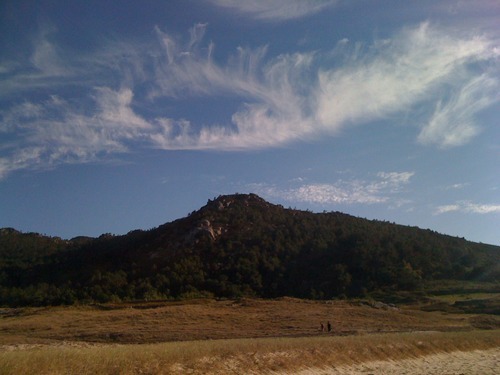
“Ubiquitous Eucalyptus” is the kind of title that makes alot of people- and I put myself in this category- feel irritated by what they perceive as an artist’s unbearable self-indulgence and pretension in naming their works. If I’m honest, the knowledge of this was a motivating factor in deciding to use the title- although not the actual reason for its choice, as I’ll explain shortly- and I didn’t have to wait long for someone to respond, after listening to the CD: ” You’ve called one of the tracks “Ubiquitous Eucalyptus”- of course you f***ing have”. Nothing if not predictable when it comes to living down to expectations…..
The area of Spain that inspired the track is in Galicia, the North-Western part of the country, and it’s fair to say that it is absolutely covered in Eucalyptus trees, to the point that they are, well, ubiquitous. I first encountered this walking part of the Santiago Trail- apart from looking amazing they do of course give off in an incredibly potent and quite intoxicating scent, particularly when walking though a forest of them on a hot summer’s day. It’s like wandering through some kind of Vicks-based world of natural legal highs, and an exhilarating experience. The reason for the whole province being carpeted in them is down to something a little more prosaic, and is not without some rather depressing side-effects. Some time in the 60s/70s, Franco decreed that Eucalyptus should be planted far and wide across Spain to create an instant paper-bark industry, which provided much needed money for the Spanish economy. Although this resulted in a short-term financial boost to the country, the longer term issue is that the trees- as they are notorious for doing- have eroded the soil so badly that they have effectively transformed vast swathes of the land in the area into a barren wasteland on which nothing can be grown. Just what Spain- and indeed the rest of Europe- needed: another metaphor for the negative effects of short-term capitalist thinking…..
This part of Spain is know for its Fiestas, which in the summer months occur at a frequency of roughly one every four hours. The Spanish attitude to fireworks is rather like a ten-year old’s to swear words: no matter how many times they use them, they simply never tire of them; they literally cannot get enough of them, all hours of the day or night- more often in broad daylight when they can’t actually be seen- fiesta or no fiesta, onloookers or no onlookers. i asked a friend of Pete’s, on whose boat we were staying in Galicia, how the country could be pleading poverty and simultaneously letting off thousands of Euros of fireworks every weekend, and he admitted rather sheepishly that “it didn’t look good, but what can you do?”. (Incidentally, this same guy, Javier, enthusiastic sailor, even more enthusiastic dope-smoker, was talking about all the unsold flats in Ares that were the result of dodgy building contracts, and expressed surprise that they weren’t being snapped up by foreign investors, “Because,” he said, “they is really nice, very smart, all with fitted chickens.”)
The exuberance of the night life in the area, the absolute cultural birthright of every Spaniard to go out every night, for as long as they wish, is what I hoped to capture in “Ubiquitous Eucalyptus”. There is a very strong folk tradition in the area- a lot of accordion and, egads, bagpipe playing- which Pete, no mean accordionist himself, has immersed himself in during his forays in to the bars of Ares, La Coruna and beyond. (I’ve recently started a found-sound project called Redez, the first track of which “En Vacances” includes recordings of Pete’s playing, plus the inevitable fireworks, all made in the Galician area.) Even when virtually destitute, the Spanish would rather die than not go out in the evening, and they are, it has to be said, very good at it, able to party all night and as a point of pride be able to turn up at work the next morning fully functioning. It is with some embarrassment that I recall a meal out in Ares that we had which rather highlighted the different cultural approaches to going out- whilst the immaculately turned out diners at the surrounding tables carefully nibbled at their food and sipped red wine from large glasses in impeccably small measures, our own table looked as though someone had performed a recent seafood-based sacrifice on it, bits of squid and sardines all over, and under, the table, a forest of beer glasses testament to the innate barbarity of our Anglo-Saxon eating habits. And whilst you could safely have ironed your laundry on the pristine white paper tablecloths of our fellow diners, the surface of our own table was starting to resemble a Festival toilet floor. Finally, when our coffees arrived, a small flagon of the local spirit was provided to drop in to our cups, which we dispensed of in suitably -disgustingly- large amounts, vaguely wondering whether we hadn’t mistakenly just polished off whatever the waiter had intended to use to refuel the oil lamps on our table with.
Viva España!
The story behind ‘Train Tracks and Travelogues Vol.2’- ‘Isis in Tunis’
‘Isis in Tunis’ is the third track taken from the ‘Train Tracks and Travelogues Vol.2’ album, and features Llewellyn Baker on guest vocals.
Lewellyn is a kind of Edwardian Rennaissance man- a proficient sailor, carpenter, boat-builder and yoga practitioner, and a man with an almost encyclopaedic knowledge of English folk-song.
The song he’s singing on ‘Isis in Tunis’ is “As I walked out one Midsummer morning”, a traditional and fairly well-known tune. It should be pointed out that there has been a fair amount of poetic licence applied to this particular rendition, which was brought out by several factors. Firstly, Llew’s singing- which was recorded in the cramped but snug kitchen of Llewellyn’s Fisherman’s cottage in Porthleven in Cornwall, coal-fired Raeburn blazing away in the corner- was the culmination of a memorable night spent in the Atlantic pub, a few doors down from Llew’s house. Anyone familiar with the traditions of sea-faring culture will no doubt be un-amazed to know that Llew, like most sailors, has the capacity to down what would for any land-based mortal be considered fatal quantities of rum in a single sitting; on the occasions when this does happen, our intrepid seafarer, who has sailed round the Cape of Good Hope and beyond in a boat without an engine, is transformed from someone who can circumnavigate the globe by the stars alone to an individual who can’t find his own front door when returning from the pub at the end of the street.
The other reason for playing a bit fast and loose with the recording of the song is that it was necessary to edit out a lot of ‘ambient’ sounds that were on the original viz. the unsolicited ‘harmonies’ of fellow guests from The Atlantic Inn who had all made it back into the warmth of Llew’s kitchen, various cat noises, and interjections from exhausted small children wondering why the adults of the house were all so inexplicably loud this particular evening.
‘Isis’ is the name of Llew’s boat- the engineless yacht on which he has had so many adventures/near-death experiences- and it was whilst sailing it in the Mediterranean some years ago that he got caught up in a storm so violent that he had to limp into Tunis to get all his sails repaired, a costly and time-consuming operation which necessitated him keeping Isis in Tunis for several months.
The female voice on the track is a field recording of an African girl singing: the coincidence of the timing and key of her voice matching Llew’s singing was a wonderful bit of serendipity, and as she wasn’t surrounded by a dozen inebriated well-wishers, domestic animals and howling babes-in-arms whilst performing, literally no editing had to be carried out on her vocals.
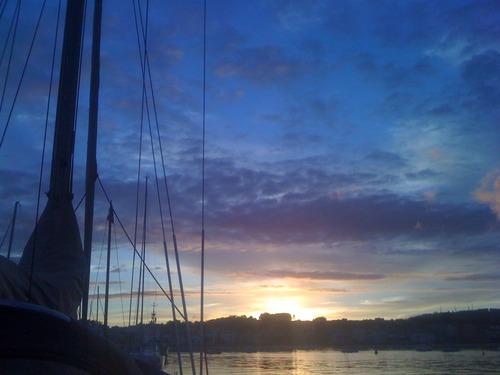
Historic Recital in Nell Gwynne’s former bedroom!
This Sunday 10th February I’ll be accompanying Jane Milligan who is doing a solo recital at the historic Lauderdale House in North London’s worst/best kept secret of a neighbourhood, Highgate. It’s nearly twenty years since Jane and I first worked together, and as we are both now entering into our early thirties, you’d be right to draw the conclusion that we were in fact both child prodigies who used to perform regularly, in the manner of Mozart or similar, to various crowned heads of Europe, on what soon became an endless cycle of adolescent musical exploitation.
Now that the foolishness of those years is behind us, Jane will be singing her own individual selection of material, with all the songs skilfully interwoven with tales from her childhood. Although inevitably best-known for our Royal tours as court-style juvenile troubadours, it’s a little known fact that Jane’s father, who used the sobriquet “Spike”, was an eminent and highly successful entertainer in his own right, and she will be revealing more of the stories behind his previously unknown showbiz exploits as part of the afternoon’s recital. I will be accompanying Jane on piano and guitar, and for those of you who are wondering, yes, obviously, I will be playing both at the same time; you don’t get to become a childhood prodigy by just sitting at the piano, you know. The concert starts at 4:30pm, upstairs at Lauderdale House, Waterlow Park, Highgate. Nearest tube Archway. Nearest place serving alcohol, inside the venue itself- don’t say we never doing anything for you.
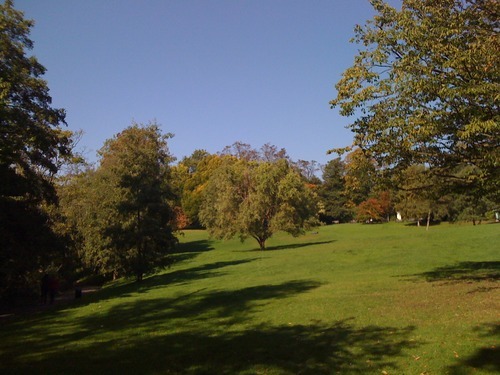
Behold the Studio of the Future!
My excitement at showing off the all new workspace is tempered by the worry that every Tom, Dick and Harriet will rush to take advantage of my newly discovered secret. This is the members area of The Southbank Centre, a minimalist, retro-tinged and creatively reassuring environment with what can only be described as breathtaking, world-class views of the Thames. This alone makes it utterly fantastic, but what really clinches it is the fact that- and I hope I don’t live to regret this- it can be yours for a mere £40 a year. There, I’ve done it now; do your worst. Turn up in your massed hordes and stare excitedly at the view whilst forgetting to write a screenplay on your MacBookPro. Drink coffee whilst toying with your iPhone, regard your neighbours furtively, wondering if they actually might be doing something productive on their laptops, or whether they too are really wondering if it’s too early to eat their packed lunch. (It’s a remarkably self-disciplined lot here). Do all this, for forty-motherloving-quid a year. Ye Gods!
It only took me a day to realise that, although the isolation and monotony of working from home had been replaced by the stimulus of being surrounded by quasi-industrious creative types, there would inevitably be inherent issues with the new found nirvana. The first day brought with it the thrill of the new, and the excitement of discovering a unique space, and within that space, the ideal spot in which to work. The second day brought the inevitable anxiety that someone else might be occupying said ideal spot. Convincing myself that it didn’t matter, and that I was ridiculously puerile to be even entertaining such thoughts, I watched my fellow workers lurking outside the locked doors of The Festival Hall at a few minutes to opening time, and scrutinised them for signs of any similar territorial instincts. They are, to a man and woman, studiedly civilised and rational people, so it was difficult to ascertain anyone’s state of mind. We entered the lift with lots of “after you”-ing, and gazed serenely at nothing in particular in a cultured sort of way as the lift rode up through the floors. And then, at the sixth floor, the doors opened.
The sight of half a dozen middle-aged creatives scuttling across the carpeted corridors, desperately clamping man-bags and handbags to their sides, all trying to create the impression that they were not making a mad dash for their respective favourite tables/chairs/sofas as they did just that, was a revelation. The utopian tranquil environment with unparalleled vistas of the city had been transformed into a toddler’s bedroom treasure hunt as we waddled frantically into the member’s area with looks of mild-mannered determination, hoping but failing to exude an air of artistic sang froid.
The consequences of witnessing this scenario led to a somewhat stressful first week, as I vainly tried to convince myself that I didn’t care where I worked, and that if I couldn’t get my optimum position I would deal with it with equanimity. I even tried leaving a bit later each morning to prove to myself that I was so unbothered by it all I didn’t even need to be outside the main doors before ten. Even so, I still caught myself gazing up at the seats by the window as I walked across Hungerford Bridge, trying to determine if someone had sat in my favoured spot; until I realised I was missing out on one of the highlights of the day, which is the view along the Thames towards Waterloo Bridge and St Pauls, and made a mental note to well and truly let go. There was a real danger that the new found and much-loved space was about to be invested with the very habits and perceived limitations that had caused me to seek a new working environment away from my own studio in the first place. How soon we forget, how quickly we turn the rose petals that litter our own blessed path into thorns.
Limited Edition Greenwing CD Offer
TRAIN TRACKS AND TRAVELOGUES VOL.2 Special Offer!
FREE Limited Edition Greenwing CD Single!
Until May 31st, when you order a copy of the album “Train Tracks and Travelogues Vol.2” on CD you will receive a FREE! Limited Edition Greenwing CD Single.
Choose from either the classic West-Coast vocal sound of “Irreplaceable” feat. Jane Milligan or the uplifting summery pop of “It’s So Good” feat. Daniel Pearce.
“Train Tracks and Travelogues Vol.2” features over fifty minutes of continuous electro-acoustic material, skilfully interwoven with audio and field recordings to create a unique sonic impression of a journey across Mediterranean Europe and North Africa.
Click on the Artwork below to order your copy of “Train Tracks and Travelogues Vol.2” with bonus Limited Edition Greenwing CD Single now!
It’s Not Over Til…..
I’ve finally booked tickets for the Royal Opera House using a voucher that’s been burning a hole in my pocket for nearly two years now. In light of the fact I haven’t done anything about this for two years, burning might be too strong a word. Quietly steaming might be closer to the mark, whilst going stone cold through neglect would be the technically accurate term. Why the long wait? Well, I could put forward a variety of excuses, so I will: on at least four occasions I tried to book tickets for operas whose name, if not byzantine plot, were reasonably familiar to me; however on each occasion I discovered I was approximately four years too late to get a ticket. Of the ones where tickets were still available, the price exceeded the value of the voucher by some several million pounds. (I’ve rounded figures up for ease of understanding).
And this was a sizeable voucher we’d been given, well into three figures. Faced with these difficulties my enthusiasm for redeeming this gift waned, somewhat inevitably. However, there was a deeper, albeit harder to reveal reason behind the tardiness in dealing with an act of generosity by two very close friends. For all the extravagance of opera, all the glamour and sheer scale of the spectacle, there is one abiding problem; the sheer, unadulterated naffness of the art-form, the mind-bending suspension of disbelief required to treat the protagonists- who invariably look as though their make-up has been done for them by an LSD-crazed paedophile- with anything like approaching credibility. Without wishing to add to the size debate in relation to modern performing artistes, the elephant in the room as far as opera is concerned is all too often an elephant in the room; and waiting for her to sing, whilst hordes of hysterically unbelievable eunuchs chant around the stage like a chorus of Cecil B de Mille extras on a hen night, can be trying on the nerves.
However, having admitted somewhat ashamedly to myself the reluctance for responding to the generous gift that I’d been given, I did finally manage to book seats, and having purchased the tickets, and realising there was £25 or so left on the voucher, popped into the ROH- well, I’m family now, so I’m allowed to use the acronyms- and asked how I could use up the remaining amount. Obviously I was hoping to exchange said sum for some mind-altering substance from behind the bar on the night, but obviously all-too-prepared for the reality that this would probably stretch to around one and a half Gin and Tonics in the crrr-aaaaa-zzzy world of opera finance, where a show is not a show until you’ve haemorrhaged the better part of 20 million quid on giraffes, flame throwers and Sperm-whale sized sopranos who can shatter the sun with a single cadenza. I was informed initially that the only place I could redeem the leftover amount was the gift shop-‘Marriage of Figaro’ egg-cup anyone? Thought not..-then told that actually it couldn’t be used for anything other than toward the cost of another production. I double-checked this information, politely at first, but with an increasing sense of urgency which seemed lost on the box-office; “Yes, you can put it towards any number of productions, in the Main House, the Linbury Studio, etc.”. “But you don’t understand”, I wanted to scream, “I’m never coming back. Why would anyone come back? Opera is bollocks! One-hundred-per-cent total and utter bollocks! And even if it was only ninety per cent balls, the fact that it took almost three times the length of the opera I’m now booked in to see to buy the bloody ticket in the first place would be enough to guarantee I never darkened your foyer again”.
But of course this would make me look like a total philistine, and if there’s one thing that philistines really hate, it’s looking like a total philistine. So I ended up nodding sagely at this information, even forgetting to laugh hollowly when the kindly member of staff told me I could even use it towards the cost of “a friend’s ticket whenever they came to see a show”. The fact that a Royal Opera House employee actually thought I might have an acquaintance culturally sophisticated and/or wealthy enough to be a regular attendee of their establishment actually made me fall in love with them a little bit, and so it is with this sense of comradeship in mind that I shall be girding myself to attend “La Fille de Regiment” later in the month. And offer my belated but extremely heartfelt thanks to the two incredibly generous friends who have given me this- literally- once in a lifetime opportunity.
From London with Love
Getting out of the city has always been a vital part of being able to live in the city, and whenever I can feel my mind wandering towards rural fantasies it is almost always as a consequence of not having followed this advice-to-self. Going to Wendover yesterday was a much-needed exile from the beloved Big Smoke, and a timely reminder of how much of England is still a vast expanse of nature, something it is all too easy forget in the teeming confines of a large city. The other reminder was that when we visit people in the country, “going for a walk” normally requires a drive of some duration before the walk itself can begin- a duration of, say, roughly, about the same length of time it takes to get out of London and in to the tranquility of the countryside itself. This, of course, is an enormously satisfying piece of rationalisation for living in the madness of the capital and not upping sticks- who has sticks in the metropolis?- and moving next door to River Cottage.
It was also very reassuring to hear someone tell me that the great Roman letter-writer Pliny complained vociferously about the endless chatter from the middle-classes about the respective merits of staying in Rome, or selling up and moving to a much larger villa in Tuscany: “Of course, you’ll have about three times the space you get in Rome and wonderful for the kids and all that, but you’ll find more culture in a strawberry yoghurt than you’ll get in Montalcino. Plus the locals all talk funny, and have sex with their livestock etc.” Gratifying indeed to know this dilemma has being going on for at least two thousand years. (At least two thousand;”I mean, I like living in a cave and it suits me for work, but is it any place to bring a kid up? Jeremy bought a new wheel yesterday, I don’t how we’re going to afford it….”)
I keep telling myself I’ve got over this dilemma but it only takes one person to tell me they’ve moved out and I get all tangled up in notions of quality of life again. Someone told me recently they were moving to Eastbourne, and as soon as they started eulogising about the sea, I felt a pang for rural living, and waking up to fresh air and gazing across the horizon. I mean, this is madness- Eastbourne is not so much God’s waiting room as the slab on which he lays the cadavers out, and I know this; I’ve been there on tour and been deafened by an audience of 500 people, all with their hearing aids set to stun, drowning out a full PA system whilst all simultaneously shuffling in their seats trying to work out where they are/why they are there/who they are/where the toilets are and where’s the nice man who said they could get an ice-cream at the interval. And yet a brief conversation with a potential London emigrant can convince me that a better quality of life is to be had in this geriatric melting-pot. It was only the news that they were now deciding to move back to London that calmed me down.
Deep down I know I couldn’t leave, and that London is a spiritual home- I’ve known since the first time I came here as a small boy that this was the only place I wanted to live in. It’s not for everyone, of course, but I have put a lot of effort into making this my “home-town”, and take a lot of pleasure in what the capital provides. All the things that you will be told you can’t have in London are there for the taking- knowing your neighbours, being recognised as regular and valued customers in your favourite store, experiencing the kindness of strangers. These things can take more time in the city, for a very obvious reason- there are so many thousands more of us, and creating space for your presence to be acknowledged requires a bit more effort, but it can still be done all the same. Then you have the luxury of a sense of community, but a community that is constantly being added to by new people, bringing with them new experiences and new ways of being. The world passes by your doorstep when you live in this great city, and you can engage with it and discover things you could never have imagined or contemplated. People will come and go, but not all of them, not all at the same time, and the backdrop to your life really is an ever-changing and exotic landscape.
There, I’ve convinced myself all over again.

